National Education Day 2024: Quality Education as a Catalyst for Change
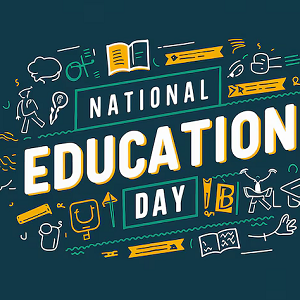 In recognition of the birth anniversary of Maulana Abul Kalam Azad, the inaugural Education Minister of independent India, who held office from 1947 to 1958, National Education Day, is celebrated annually on November 11. Alongside his aspirations for inclusive education and the advancement of science and culture, this day honors his role in shaping India's educational framework.
In recognition of the birth anniversary of Maulana Abul Kalam Azad, the inaugural Education Minister of independent India, who held office from 1947 to 1958, National Education Day, is celebrated annually on November 11. Alongside his aspirations for inclusive education and the advancement of science and culture, this day honors his role in shaping India's educational framework.
Several educational establishments were founded under the direction of Maulana Abul Kalam Azad and these include Sangeet Natak Academy, Lalit Kala Academy, the Council of Scientific and Industrial Research (CSIR), the Indian Council for Cultural Relations. He also founded the 1st Indian Institute of Technology, IIT Kharagpur.
In 2024, inclusive, high-quality education will be the main theme of National Education Day. This topic encourages exceptional education, successfully equipping people with the abilities and information required for a changing world. Developing critical thinking, creativity, and emotional intelligence is crucial for academic achievement.
Here is what India's Education leaders and Industry Experts from the industry had to say about National Education Day and its importance.
Dr Christopher Abraham CEO & Head, SP Jain School of Global Management
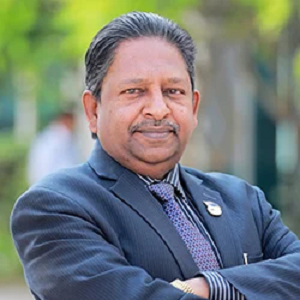
“On National Education Day 2024, we believe quality education is the foundation of progress and empowerment. As we champion excellence in learning, we recognize that true education goes beyond academics—it shapes resilient, ethical leaders equipped to navigate and impact a dynamic world.
Quality education means fostering critical thinking, cultural awareness, and real-world skills that inspire meaningful change. Our mission is to create inclusive learning environments that empower students from all backgrounds to reach their fullest potential. By prioritizing quality in education, we invest not only in individual success but in a more equitable, innovative, and forward-thinking global community.”
Somak Raychaudhury, Vice Chancellor, Ashoka University
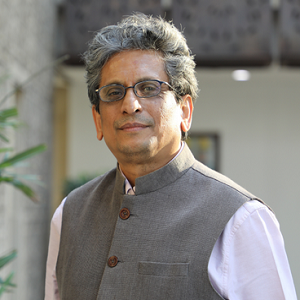 "On National Education Day, we celebrate the legacy of our leaders who have laid the foundation of a truly inclusive and transformative education system in our country, which has played a pivotal role in empowering Indian citizens and revolutionizing Indian societies. As we advance into an increasingly dynamic and tech-driven world, the Indian education system is evolving to address emerging challenges and nurture a new generation of holistic, well-rounded learners - a shining example of this progressive shift being the National Education Policy (NEP) 2020. We at Ashoka University remain dedicated to fostering a learning environment that emphasizes on interdisciplinary approach, critical thinking, inclusivity, and global perspectives—key elements that will drive India’s educational success and contribute meaningfully to the realization of Viksit Bharat.”
"On National Education Day, we celebrate the legacy of our leaders who have laid the foundation of a truly inclusive and transformative education system in our country, which has played a pivotal role in empowering Indian citizens and revolutionizing Indian societies. As we advance into an increasingly dynamic and tech-driven world, the Indian education system is evolving to address emerging challenges and nurture a new generation of holistic, well-rounded learners - a shining example of this progressive shift being the National Education Policy (NEP) 2020. We at Ashoka University remain dedicated to fostering a learning environment that emphasizes on interdisciplinary approach, critical thinking, inclusivity, and global perspectives—key elements that will drive India’s educational success and contribute meaningfully to the realization of Viksit Bharat.”
Raghav Gupta, Managing Director, India and Asia Pacific, Coursera
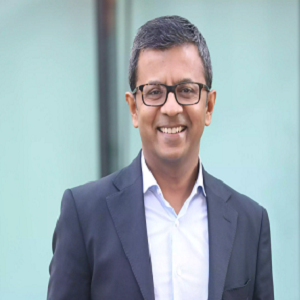
“On India’s National Education Day, we’re reminded of the transformative power of the United Nations Sustainable Development Goal 4—education. It’s the foundation of human progress, empowering individuals, building just societies, and driving sustainable growth. Our mission at Coursera aligns closely with this vision, providing accessible, world-class learning that equips individuals with industry-relevant skills and fosters lifelong learning. With India now surpassing all of Europe in learners on our platform, we are excited to support this momentum, embracing AI-enhanced education to build an AI-skilled workforce and contribute to India’s journey toward a $5 trillion economy.”
Damayanti Bhattacharya, Principal, Jasudben ML School, Mumbai
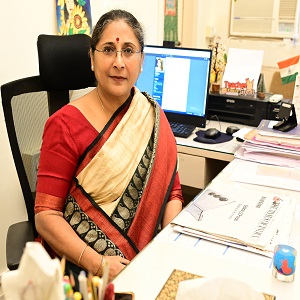 “National Education Day is a reminder to the transformative role education plays in shaping not just individual futures, but the future of our entire nation. As we honour the vision of India’s first Education Minister, Maulana Abul Kalam Azad, we should also reflect on how far we have come and the path ahead to make it a more student-centric journey. In a rapidly changing world, education can be a catalyst to promote inclusivity, prioritizing innovative teaching methods and leveraging digital tools for broader access, that prepares students not just for exams, but for life. NEP-2020 has laid a strong foundation for this by emphasizing equity, holistic, and flexible learning. On this day, we can also make sure that quality holistic education is accessible to all as knowledge is adorned by character. The future depends on empowering students with the time-tested values they need to build a forward-thinking world.”
“National Education Day is a reminder to the transformative role education plays in shaping not just individual futures, but the future of our entire nation. As we honour the vision of India’s first Education Minister, Maulana Abul Kalam Azad, we should also reflect on how far we have come and the path ahead to make it a more student-centric journey. In a rapidly changing world, education can be a catalyst to promote inclusivity, prioritizing innovative teaching methods and leveraging digital tools for broader access, that prepares students not just for exams, but for life. NEP-2020 has laid a strong foundation for this by emphasizing equity, holistic, and flexible learning. On this day, we can also make sure that quality holistic education is accessible to all as knowledge is adorned by character. The future depends on empowering students with the time-tested values they need to build a forward-thinking world.”
G. Shankara, Executive Vice President, Finance and Administration, Toyota Kirloskar Motor
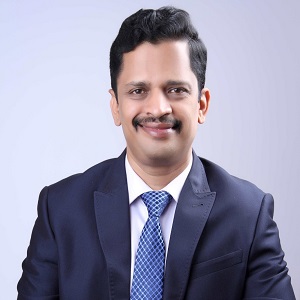 “As we observe National Education Day 2024, at TKM, our commitment extends beyond just business; we are dedicated to nurturing lifelong learning and fostering an inclusive environment that values diversity, equity, and opportunity for all. By prioritizing quality education and comprehensive skill development, we aim to transform youth into empowered, productive members of society. Our initiatives not only support individual growth but also contribute significantly to building stronger communities. Aligned with the Prime Minister’s Internship Scheme announced in the Union Budget 2024-25, we are strengthening our commitment by offering practical training opportunities that effectively bridge the gap between education and industry needs. Through these focused efforts, we aspire to play an integral role in achieving the vision of Viksit Bharat—a developed and progressive nation where every citizen thrives.”
“As we observe National Education Day 2024, at TKM, our commitment extends beyond just business; we are dedicated to nurturing lifelong learning and fostering an inclusive environment that values diversity, equity, and opportunity for all. By prioritizing quality education and comprehensive skill development, we aim to transform youth into empowered, productive members of society. Our initiatives not only support individual growth but also contribute significantly to building stronger communities. Aligned with the Prime Minister’s Internship Scheme announced in the Union Budget 2024-25, we are strengthening our commitment by offering practical training opportunities that effectively bridge the gap between education and industry needs. Through these focused efforts, we aspire to play an integral role in achieving the vision of Viksit Bharat—a developed and progressive nation where every citizen thrives.”
Balu Ramachandran, Founder, OC Academy
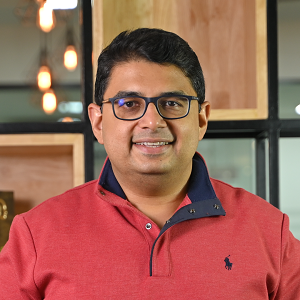 "In India, a staggering 85% of professionals are committed to upskilling in the coming year. For doctors, this dedication to lifelong learning is not just a trend, it is a necessity. The medical field is constantly evolving, with new technologies, treatments, and research emerging at an unprecedented pace. Doctors who prioritize upskilling are better equipped to provide the highest quality patient care, incorporating the latest advancements into their practice. Whether it's mastering cutting-edge surgical techniques, utilizing AI-powered diagnostic tools, or staying abreast of the latest pharmaceutical breakthroughs, continuous learning empowers doctors to enhance their skills and ultimately improve patient outcomes. In a world where medical knowledge is constantly expanding, upskilling is the key to remaining at the forefront of healthcare."
"In India, a staggering 85% of professionals are committed to upskilling in the coming year. For doctors, this dedication to lifelong learning is not just a trend, it is a necessity. The medical field is constantly evolving, with new technologies, treatments, and research emerging at an unprecedented pace. Doctors who prioritize upskilling are better equipped to provide the highest quality patient care, incorporating the latest advancements into their practice. Whether it's mastering cutting-edge surgical techniques, utilizing AI-powered diagnostic tools, or staying abreast of the latest pharmaceutical breakthroughs, continuous learning empowers doctors to enhance their skills and ultimately improve patient outcomes. In a world where medical knowledge is constantly expanding, upskilling is the key to remaining at the forefront of healthcare."
Husien Dohadwalla, Co - CEO Crimson Schools
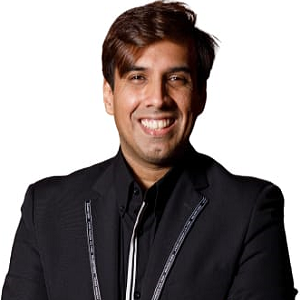 “On this National Education Day, we celebrate the transformative vision of the National Education Policy (NEP) 2020, that aims to reshape the landscape of Indian education from kindergarten to higher education. Keeping the VUCA (Volatile, Uncertain, Complex and Ambiguous) world that students will enter into on completion of their studies, the need of the hour is moving away from hard compartmentalization of subjects and streams to holistic and multidisciplinary learning that emphasizes skill development over content mastery. This is exactly what NEP 2020 aims to achieve across the entire educational continuum – where students are equipped with the 3Cs – Creativity, Critical thinking and Collaboration skills. As we celebrate this day, let us honor the policy's commitment to education as a lifelong journey, focused on cultivating responsible, innovative and globally-minded citizens.”
“On this National Education Day, we celebrate the transformative vision of the National Education Policy (NEP) 2020, that aims to reshape the landscape of Indian education from kindergarten to higher education. Keeping the VUCA (Volatile, Uncertain, Complex and Ambiguous) world that students will enter into on completion of their studies, the need of the hour is moving away from hard compartmentalization of subjects and streams to holistic and multidisciplinary learning that emphasizes skill development over content mastery. This is exactly what NEP 2020 aims to achieve across the entire educational continuum – where students are equipped with the 3Cs – Creativity, Critical thinking and Collaboration skills. As we celebrate this day, let us honor the policy's commitment to education as a lifelong journey, focused on cultivating responsible, innovative and globally-minded citizens.”
Kirti Kabra, Director at RR Global
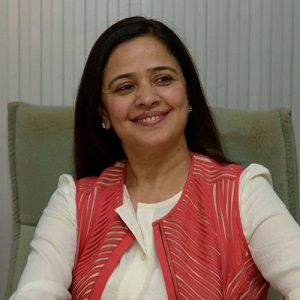 “As we commemorate National Education Day 2024, we honor the legacy of India’s first Education Minister, Maulana Abul Kalam Azad, whose vision laid the foundation for education as a force for national growth. Today, in a world of rapid transformation, education is not just a tool for social mobility but a critical driver for addressing the growing skill gaps in our economy. According to the National Skill Development Corporation (NSDC), India faces a striking shortfall of skilled workers, with a projected deficit of 30-32 million by 2025 and up to 49 million by 2027, affecting critical industries like manufacturing, healthcare, real estate, and construction. This highlights the pressing need for collaborative efforts to bridge the gap between demand and supply of skilled talent. The responsibility to empower young minds through accessible, quality education is shared by government, industry, and society at large, and is the first step to bridging this skills gap. Businesses, in particular, have an opportunity—and a duty—to contribute meaningfully through initiatives like scholarships, mentorship, and partnerships with academia."
“As we commemorate National Education Day 2024, we honor the legacy of India’s first Education Minister, Maulana Abul Kalam Azad, whose vision laid the foundation for education as a force for national growth. Today, in a world of rapid transformation, education is not just a tool for social mobility but a critical driver for addressing the growing skill gaps in our economy. According to the National Skill Development Corporation (NSDC), India faces a striking shortfall of skilled workers, with a projected deficit of 30-32 million by 2025 and up to 49 million by 2027, affecting critical industries like manufacturing, healthcare, real estate, and construction. This highlights the pressing need for collaborative efforts to bridge the gap between demand and supply of skilled talent. The responsibility to empower young minds through accessible, quality education is shared by government, industry, and society at large, and is the first step to bridging this skills gap. Businesses, in particular, have an opportunity—and a duty—to contribute meaningfully through initiatives like scholarships, mentorship, and partnerships with academia."
Raj Mruthyunjayappa, Chairman and CEO, Talisma Corporation
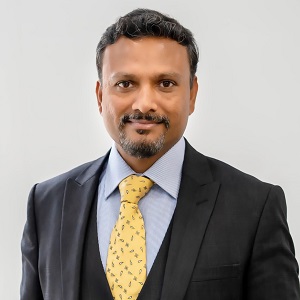 "As a nation, we continue to embrace the expanding role of technology in education. As an organisation our commitment is to ensure every student has access to the resources and opportunities needed to succeed. Education is not only about imparting knowledge; it’s about sparking curiosity, nurturing creativity, and equipping future generations with the skills to thrive in an agile, interconnected world. On National Education Day, I believe we have the power through technology to create personalized, inclusive, and accessible learning experiences. This can shape a generation of critical thinkers and problem solvers, empowered to lead. Education is the foundation of progress, and technology is the bridge connecting today’s students with tomorrow’s possibilities. Together, we can catalyse societal change through education and build knowledge-driven communities across the country."
"As a nation, we continue to embrace the expanding role of technology in education. As an organisation our commitment is to ensure every student has access to the resources and opportunities needed to succeed. Education is not only about imparting knowledge; it’s about sparking curiosity, nurturing creativity, and equipping future generations with the skills to thrive in an agile, interconnected world. On National Education Day, I believe we have the power through technology to create personalized, inclusive, and accessible learning experiences. This can shape a generation of critical thinkers and problem solvers, empowered to lead. Education is the foundation of progress, and technology is the bridge connecting today’s students with tomorrow’s possibilities. Together, we can catalyse societal change through education and build knowledge-driven communities across the country."
Prof. (Dr.) M Viswanathaiah, Registrar at Alliance University
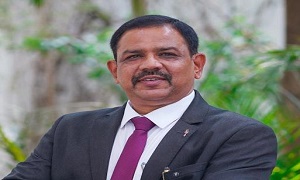 “Higher education must be redesigned for the twenty-first century for several reasons, including the shifting nature of the job market, the digital revolution, and the changing needs of students. Graduates with intercultural competency and global perspectives are in high demand in today's globalised industry. Therefore, to handle complex global concerns, universities must promote international linkages and collaborations. Through inclusive policies and programs, HEIs play a critical role in advancing social justice and lowering inequality while preparing future leaders to tackle environmental issues and advance sustainable practices.
“Higher education must be redesigned for the twenty-first century for several reasons, including the shifting nature of the job market, the digital revolution, and the changing needs of students. Graduates with intercultural competency and global perspectives are in high demand in today's globalised industry. Therefore, to handle complex global concerns, universities must promote international linkages and collaborations. Through inclusive policies and programs, HEIs play a critical role in advancing social justice and lowering inequality while preparing future leaders to tackle environmental issues and advance sustainable practices.
Prof. Ajay Kumar Jain, Dean (PGDM Online, School of Management of Financial Institutions and Accreditations & Rankings), MDI Gurgaon
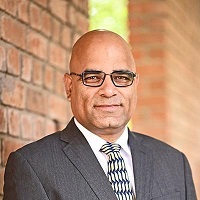
As we celebrate National Education Day, it's clear that education stands at the precipice of a revolution. Digital disruption, the surge in demand for real-world skills, and the moral imperative for inclusivity are rewriting the very purpose of learning. Students today are not just preparing for careers. Our schools and universities must become incubators of innovation, empowering the next generation to tackle the defining challenges of our time.
In this context, our priority is two-fold. In the face of automation, AI, and unprecedented data flows, our mission is to equip students with both technical proficiency and a human-centred approach. Real-world skills in fields like data literacy, sustainability, and global citizenship are essential, but they must be taught alongside resilience, empathy, and ethical decision-making. This balance between technological fluency and core human values is essential for cultivating individuals who can lead with both competence and compassion
One of the key tenets of rethinking higher education is incorporating digital literacy, critical thinking, and practical problem-solving into core courses. By reimagining higher education, institutions may better prepare graduates for success in the twenty-first century and contribute to the creation of a more creative, equitable, and sustainable future”.

